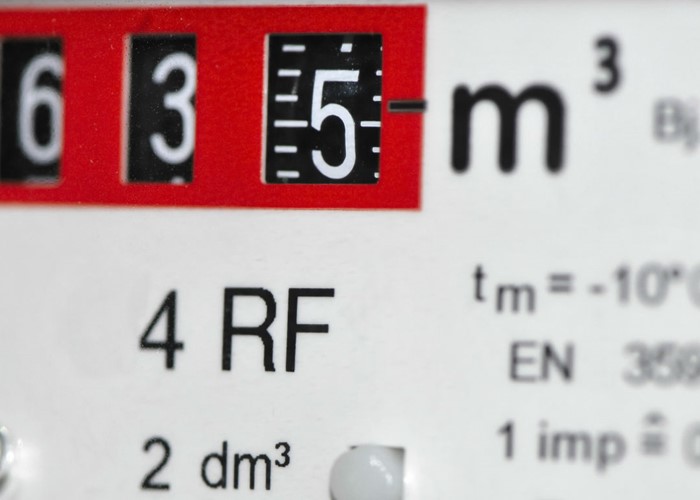First Utility and British Gas to provide personalised energy saving tips

The two energy companies have launched schemes aimed at helping us cut our bills. We look at what they offer.
First Utility and British Gas are each launching schemes aimed at helping their customers cut their energy bills, with personalised energy saving tips.
First Utility has launched the My Energy plan, providing users with exact information on when, where and how they can cut their energy bills.
The system tracks how your home is performing compared to similar homes in the area, so that you have a better idea of how efficient your household actually is. You can then use this as a benchmark to take steps to improve your energy efficiency and cut your bills.
How to cut your bill
So, you know that your next door neighbour spends far less on their gas and electricity bills than you do. Great, but what now?
Provide First Utility with a few facts about your home (things like whether you have a fire, how your central heating is powered, whether it’s a flat/apartment/detached/semi-detached, etc) and the firm will put together some personalised energy saving tips for you.
Keeping on top of your energy
The service also allows users to keep on top of their exact usage. You’ll receive regular emails reporting on how your energy use has changed over time. Once you’ve been with the provider for a year, these reports will track year-on-year changes and allow you to set goals to spend less energy than you did the previous year.
What’s next?
First Utility has a few ideas in the works to make My Energy even more useful. One possible innovation is high usage text alerts. This will work alongside your smart meter, meaning that if the company spots your usage is higher than usual for that time period, it will let you know so that you can act quickly to try to limit the impact in your next bill.
The firm also plans to add weather data functionality, so you can compare your usage against the weather conditions, helping you build a decent idea of how the weather affects your usage, and where you can cut that down.
How to get My Energy
The scheme is open to new and existing customers and is available on the iSave and Smart tariffs.
The good news is that the two versions of the iSave tariff are currently the cheapest in the country, as this table shows.
|
|
Supplier |
Tariff |
Average cost |
Average saving* |
Notes |
|
1 |
First Utility |
£1,027 |
£295 |
Cheapest tariff but not fixed |
|
|
2 |
First Utility |
£1,047 |
£275 |
Fixed until 30 Sep 2013 |
|
|
3 |
EDF |
£1,054 |
£268 |
Fixed until September 2013 |
|
|
4 |
ScottishPower |
£1,055 |
£267 |
Guaranteed to be 8.3% lower than ScottishPower's standard till 31 July 2013 |
|
|
5 |
Sainsbury's Energy |
£1,058 |
£264 |
Fixed until June 2013 |
* based on average dual fuel tariff costing £1,345 per year in Oct 2011 (Source: Ofgem) and adjustment of £23 for recent price drops
British Gas has its own version
British Gas has launched its own personalised energy advice trial. Over the next six months personalised hints and tips on how households can cut their energy use will be sent out to 10,000 smart meter customers.
The schemes are really very similar. British Gas will also have a comparison of your home’s energy use compares to similar homes in the same postcode area, but will also include an average breakdown of exactly what the energy is being used on (lighting, heating the home, heating water, etc)
Will they make a difference?
It all sounds lovely doesn’t it? Energy companies on our side, helping us keep informed on exactly how much energy we are using and so enabling us to cut our spend on gas and electricity.
Energy firms are businesses, and they want to make money. So while they talk about helping us cut down the size of our bills, they don’t want us to cut them too much as it would dent their profits.
Maybe I’m just a little cynical. After all, I actually have a lot of time for First Utility. It isn’t one of the so-called 'Big Six' energy providers, and has consistently launched competitive tariffs. It has also resisted, as best it can, the sheep-like pricing changes that the biggest providers are guilty of as soon as one feels the urge to adjust their pricing upwards.
If we want to break the grip of the Big Six, then innovative, smaller outfits like First Utility need our support. And so long as First Utility keeps launching deals that are cheaper than the big boys, that’s what they’ll get from me.
I hope it works, I really do. I hope the information sent out by these firms amounts to more than the observation that we spend more on energy in December than we do in June and that we can all cut our energy bills by turning off the lights when leaving a room.
I’m just not holding my breath.
What do you think? Will you be signing up for these schemes? Do you trust your energy firm to help you cut your energy bills? Let me know your thoughts in the Comment box below.
More on gas and electricity
EU exposes UK's steeply rising energy prices
Comments
Be the first to comment
Do you want to comment on this article? You need to be signed in for this feature